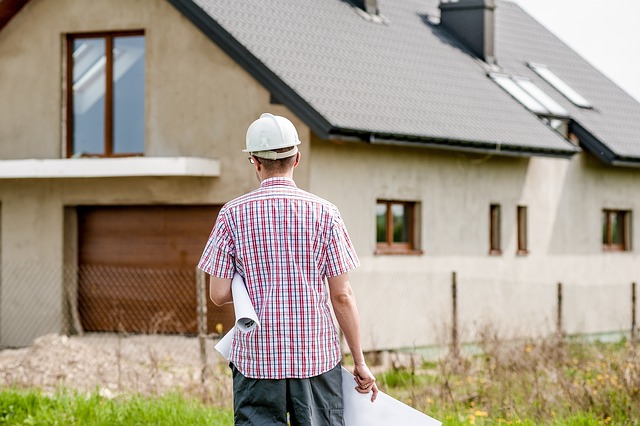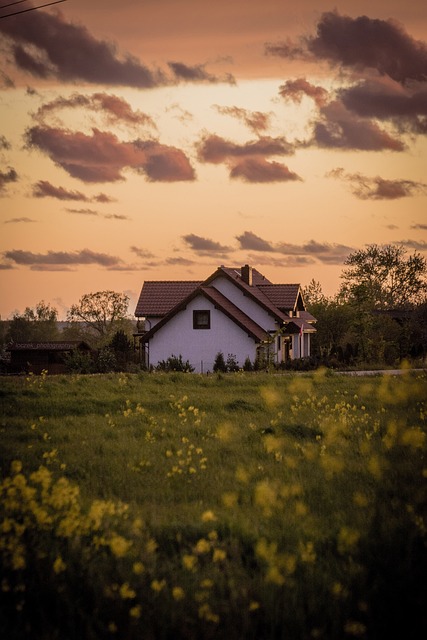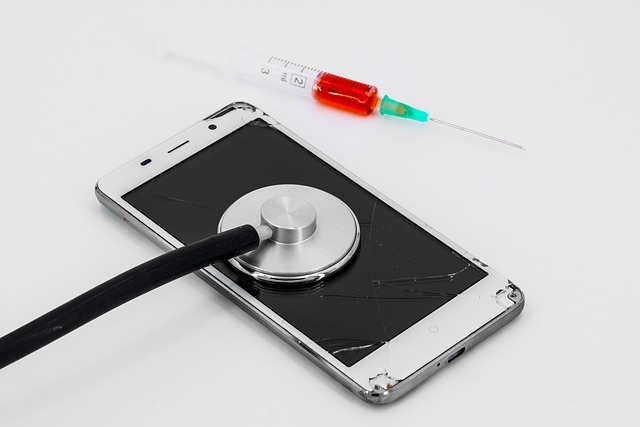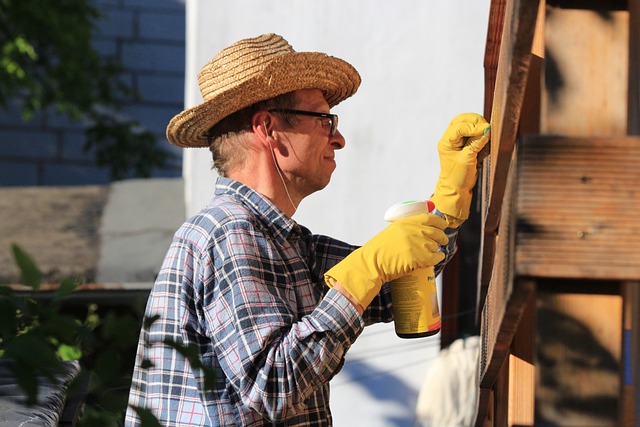This section highlights the integral roles of plumbing and electrical professionals in ensuring a safe and efficient home environment through regular maintenance, repair, and upgrades. Plumbers are key to managing water systems, from leak detection to optimizing pressure, while preventing water damage and extending the lifespan of plumbing infrastructure. Electrical experts are equally crucial for installing, maintaining, and updating a home's electrical systems, including smart home integrations, to guarantee safety and reliability in power supplies. Homeowners are advised to perform routine inspections, such as testing GFCI outlets and checking water heaters for sediment buildup, and to address issues promptly, often with the assistance of professionals to avoid more severe problems. Regular upkeep includes preventing clogged drains, inspecting faucets, and ensuring electrical systems comply with current codes. Integrated Home Repair and Maintenance practices are essential for safeguarding both plumbing and electrical systems, extending their lifespan, and preventing hazards like leaks, water damage, and electrical fires. The collaboration of licensed plumbers and electricians is advocated to address complex issues, adhere to building codes, and uphold safety standards within the home.
When it comes to safeguarding your home, the intricate dance between plumbing and electrical systems is crucial. This article delves into the synergy of these vital components, offering insights from seasoned experts on maintaining a safe, efficient living space. From common plumbing hiccups to electrical system upkeep, we’ll explore tips and best practices essential for comprehensive home repair and maintenance. Join us as we unravel the interwoven tasks that ensure your home functions harmoniously.
- Understanding the Role of Plumbing and Electrical Experts in Home Repair and Maintenance
- Common Plumbing Issues and Solutions for Homeowners
- Essential Electrical System Maintenance Tips for Ensuring Home Safety
- The Intersection of Plumbing and Electrical Systems: Best Practices for Integrated Home Maintenance
Understanding the Role of Plumbing and Electrical Experts in Home Repair and Maintenance

When it comes to maintaining a safe and functional home, the roles of plumbing and electrical experts are pivotal. In the realm of home repair and maintenance, these specialists possess specialized knowledge and skills that are indispensable for ensuring the integrity and efficiency of a residence’s systems. Plumbing professionals are tasked with installing, maintaining, and repairing piping systems to deliver clean water for use and to remove wastewater effectively. Their expertise is crucial for detecting leaks, preventing water damage, and ensuring that water pressure and heating systems function optimally. Regular maintenance by plumbers can extend the lifespan of these systems and prevent costly repairs in the future.
In parallel, electrical experts play a similarly critical role in home repair and maintenance. They are responsible for the installation, upkeep, and updates of all electrical systems within a home, from wiring and lighting to advanced smart home technologies. Their work ensures that homes are equipped with safe, reliable, and efficient power supplies. Electrical specialists assess electrical loads, upgrade outdated systems to meet modern demands, and address any issues that could pose risks such as fires or electric shocks. Their role is not only to repair what’s broken but also to future-proof homes by integrating new technologies that enhance both convenience and safety. Homeowners rely on the expertise of these professionals to keep their living spaces running smoothly and to navigate the complexities of modern technology in home repair and maintenance.
Common Plumbing Issues and Solutions for Homeowners

When it comes to maintaining a comfortable and functional home, understanding common plumbing issues and their solutions is crucial for homeowners. One prevalent issue is leaky faucets, which can waste significant amounts of water over time. To address this, homeowners should regularly inspect washers and O-rings within the faucet for wear and replace them as necessary. Another frequent problem is clogged drains, often due to accumulations of hair, soap scum, or foreign objects. Homeowners can prevent clogs by using drain covers and avoiding pouring grease or other inappropriate materials down sinks.
For more complex issues like water pressure that’s too low or too high, homeowners should first check the main shut-off valve and pressure regulators. Adjustments may be needed to balance the system and ensure optimal water pressure throughout the house. Regular maintenance tasks, such as clearing out sediment from water heaters and ensuring traps under sinks are full of water to prevent sewer gas from entering the home, also fall under home repair and maintenance best practices. By staying proactive and addressing these issues early, homeowners can avoid more extensive and costly repairs down the line. It’s always recommended to consult with or hire a professional plumber for more complex problems to ensure proper and safe solutions.
Essential Electrical System Maintenance Tips for Ensuring Home Safety

Regular maintenance of your home’s electrical system is paramount for safety and efficiency. To safeguard your dwelling, it’s crucial to periodically inspect wiring, outlets, and circuit breakers. Ensure that all wiring meets current electrical codes, as older systems may be prone to failure due to wear and tear or outdated technology. Professional electricians can assist in updating your system to prevent potential hazards. It’s also wise to test GFCI (Ground Fault Circuit Interrupter) outlets regularly; these are particularly important in areas prone to moisture, such as bathrooms and kitchens, to protect against electrical shocks.
Moreover, consider the load on your circuits by evaluating which appliances or devices require the most power and strategically plan their use. Overloading circuits can lead to overheating and fire risks. Inspecting light fixtures, replacing dimming or flickering bulbs, and cleaning light fittings are routine tasks that maintain optimal lighting conditions and prevent electrical fires. For homes with young children or pets, safety measures such as installing tamper-resistant receptacles can prevent tragic accidents. It’s imperative to address any issues promptly and involve licensed professionals for complex repairs or updates to ensure your home remains a safe sanctuary. Regular upkeep through home repair and maintenance practices not only extends the lifespan of your electrical system but also provides peace of mind, knowing that your home is protected against potential electrical dangers.
The Intersection of Plumbing and Electrical Systems: Best Practices for Integrated Home Maintenance

When considering the intricate workings of a modern home, the synergy between plumbing and electrical systems is paramount for efficient and safe operation. Effective home repair and maintenance hinge on understanding how these two critical components interact and influence each other. For instance, when integrating new appliances that require both water and electricity, such as a dishwasher or refrigerator, it’s crucial to ensure that the plumbing lines are correctly routed to avoid leakage near electrical connections, which poses a significant safety risk. Similarly, during renovations or installations, careful planning is required to route electrical wiring without compromising the integrity of the plumbing system.
Best practices for integrated home maintenance involve regular inspections and updates to both plumbing and electrical systems to prevent issues from arising. Homeowners should be vigilant in monitoring for signs of wear or potential conflicts between the two systems, such as corroded pipe fittings near electrical components or outdated wiring in areas with high moisture levels, like bathrooms and kitchens. Regular maintenance, including checking for leaks, testing ground-fault circuit interrupters (GFCIs), and ensuring proper insulation of both pipes and electrical cables, particularly in unheated spaces, will extend the lifespan of your home’s infrastructure. Collaboration between licensed plumbers and electricians is essential when performing any significant work that impacts both systems. Their expertise ensures compliance with building codes and safety standards, ultimately safeguarding the functionality and longevity of your home.
Homeowners can significantly benefit from the expertise of plumbing and electrical professionals in maintaining a safe, efficient, and comfortable living environment. This comprehensive exploration into home repair and maintenance highlights the importance of understanding common plumbing issues and solutions, as well as essential tips for electrical system upkeep. At the intersection of these two critical systems lie best practices for integrated home maintenance—a testament to the interconnected nature of a home’s functionality. By heeding the advice from these experts, homeowners can ensure their homes remain in top condition, safeguarding against potential hazards and promoting longevity. Regular check-ups and timely repairs are key to preventing small issues from escalating into costly problems. With this knowledge at hand, maintaining your home’s plumbing and electrical systems will be a breeze, ensuring uninterrupted comfort and safety for years to come.
